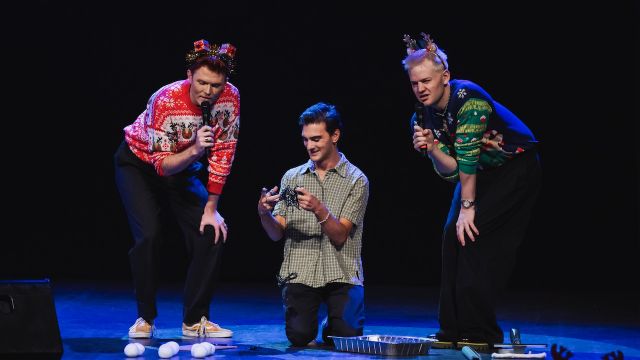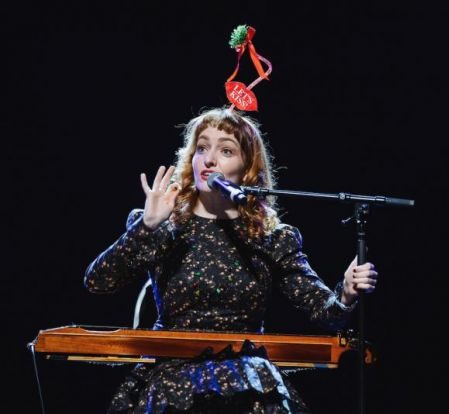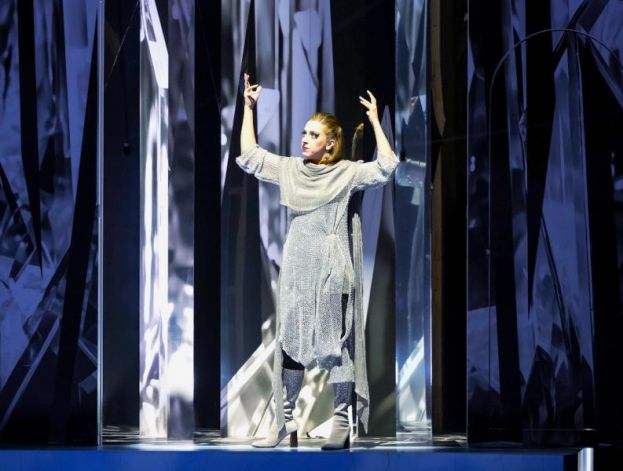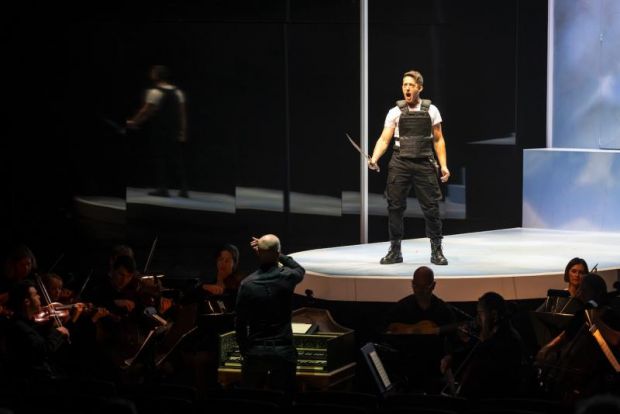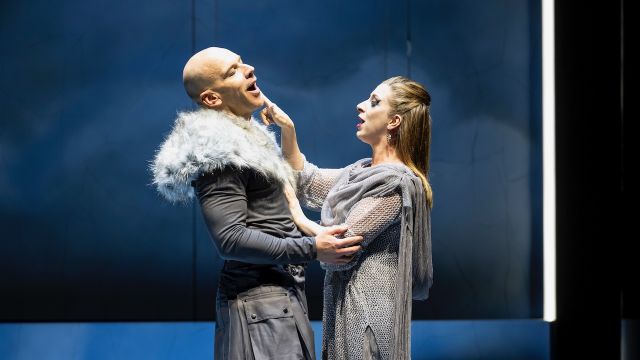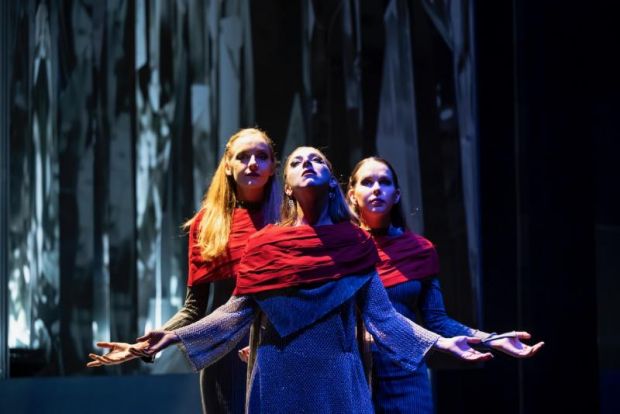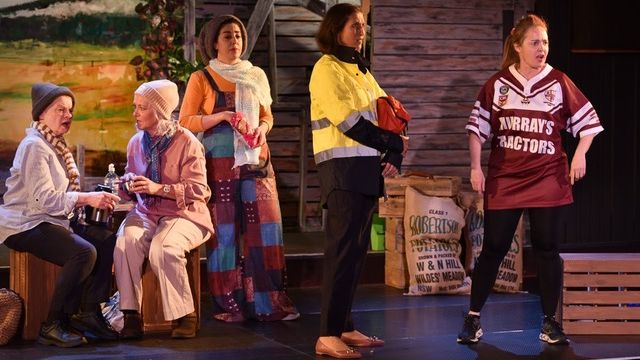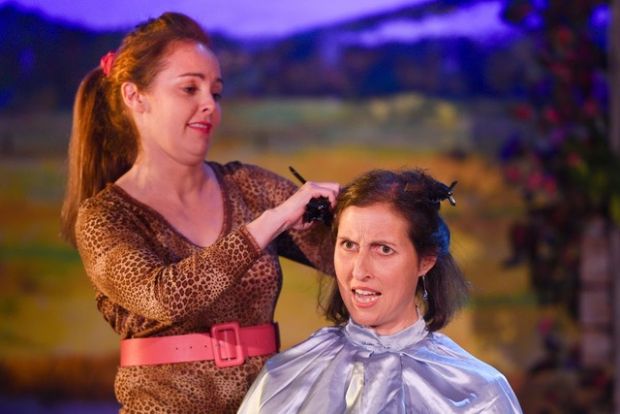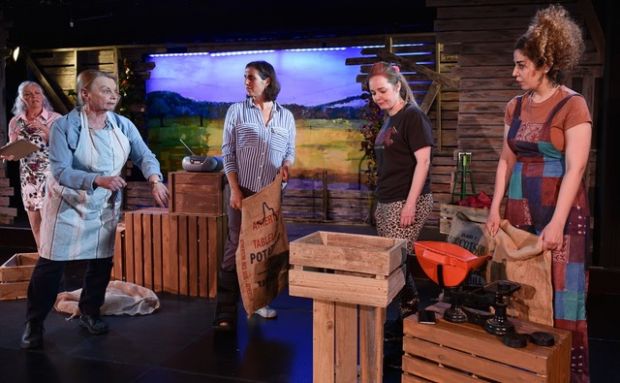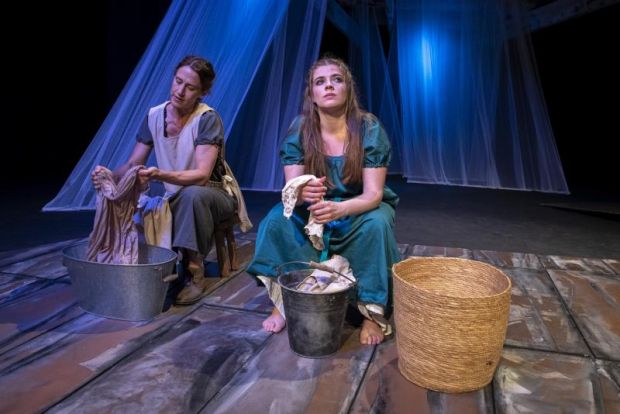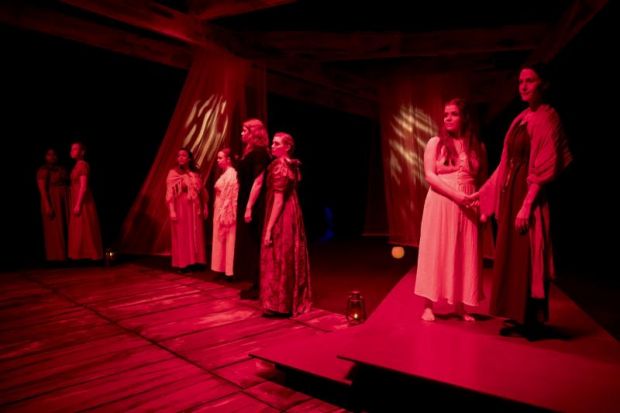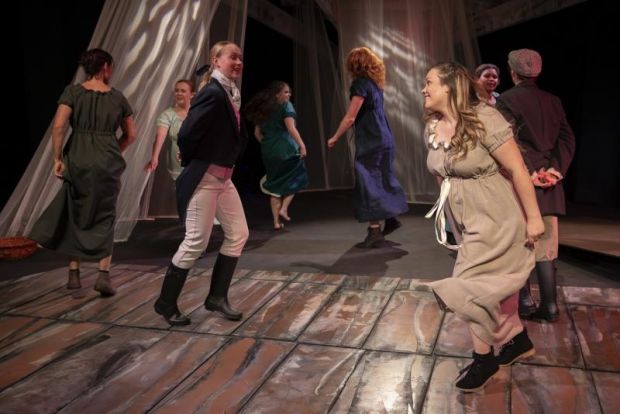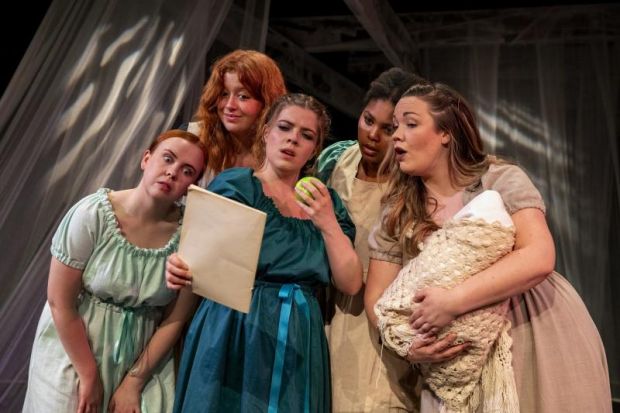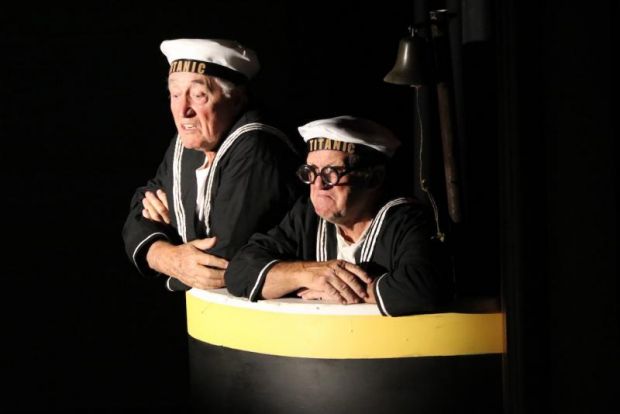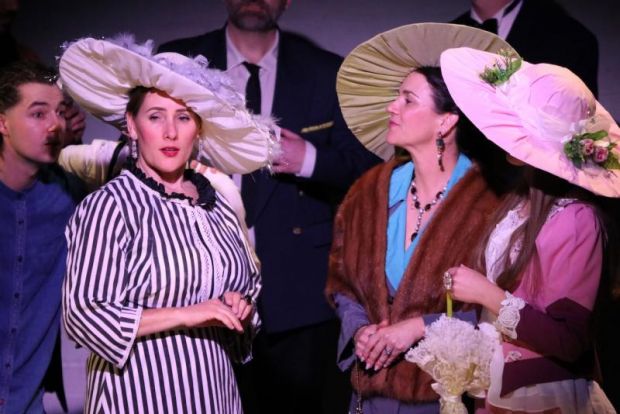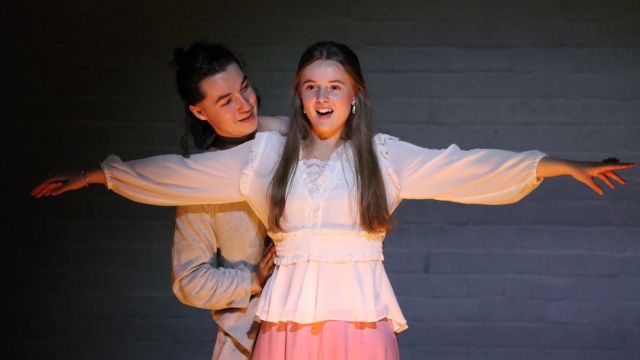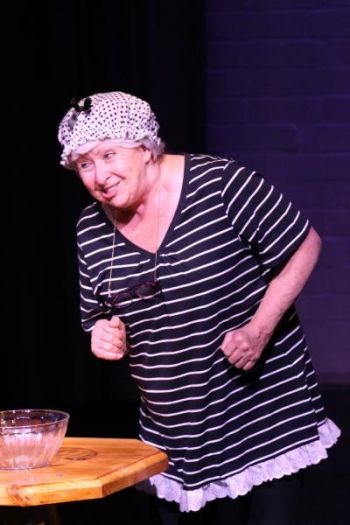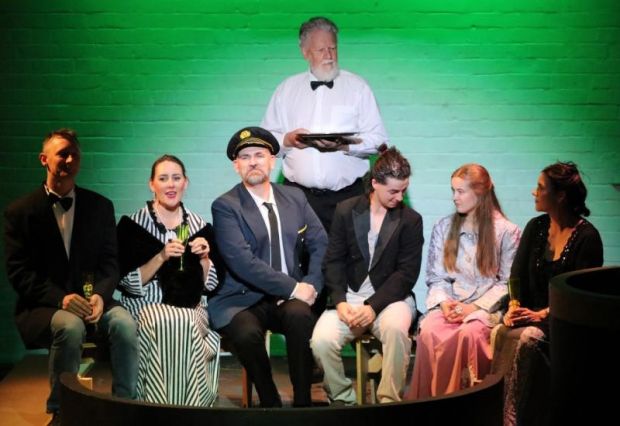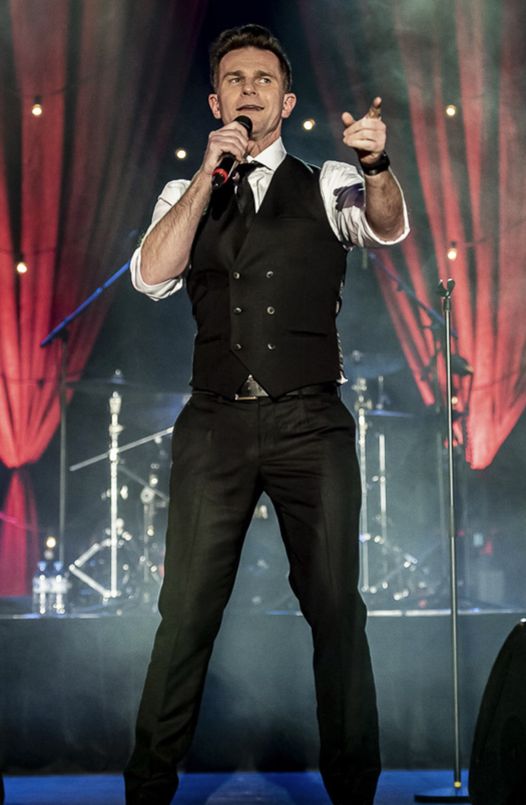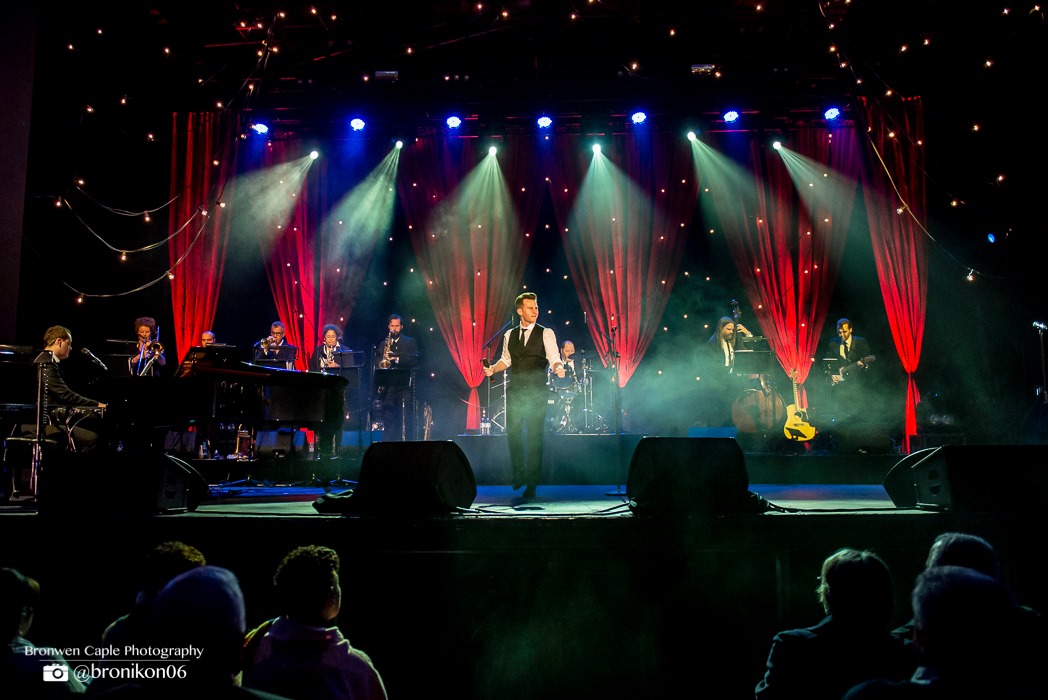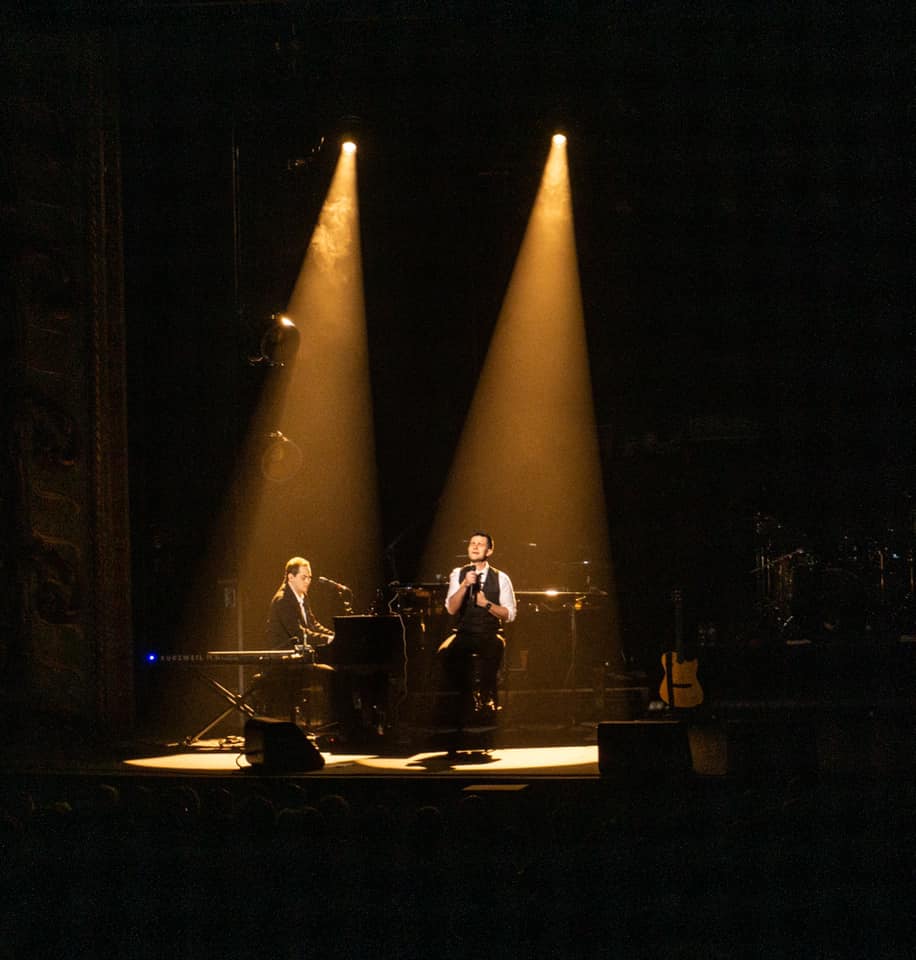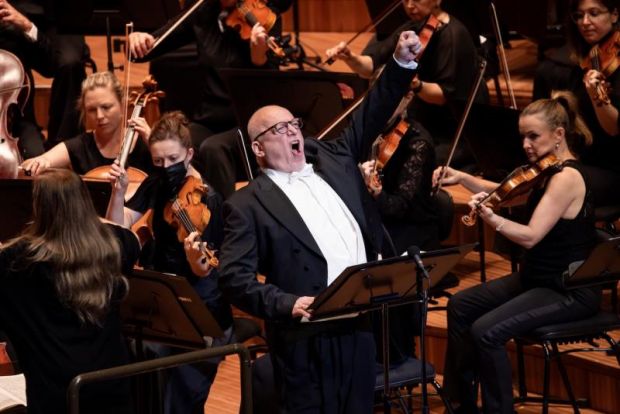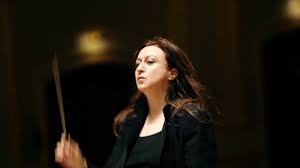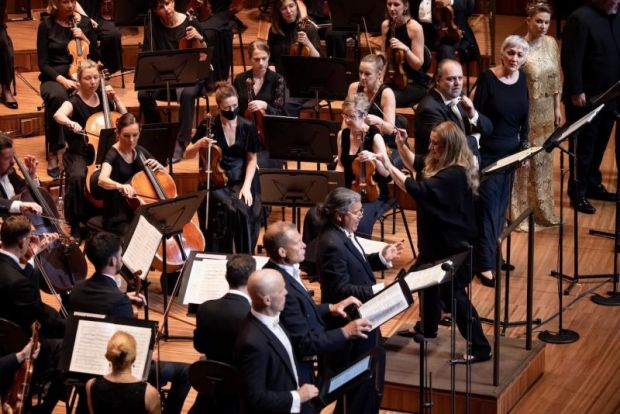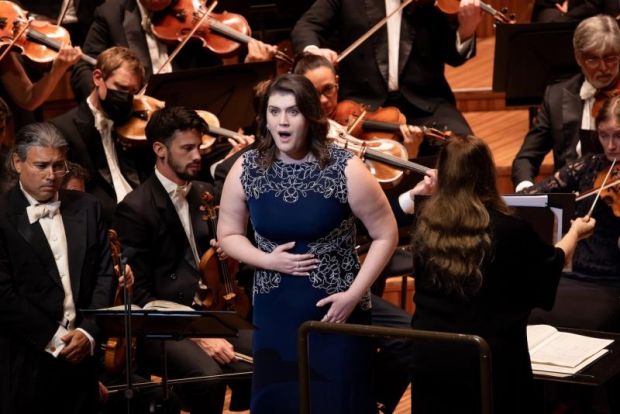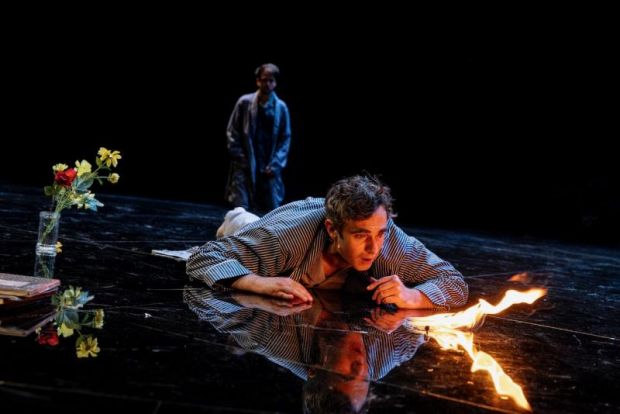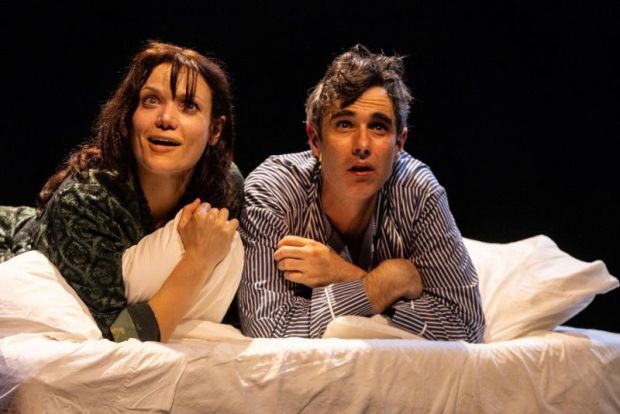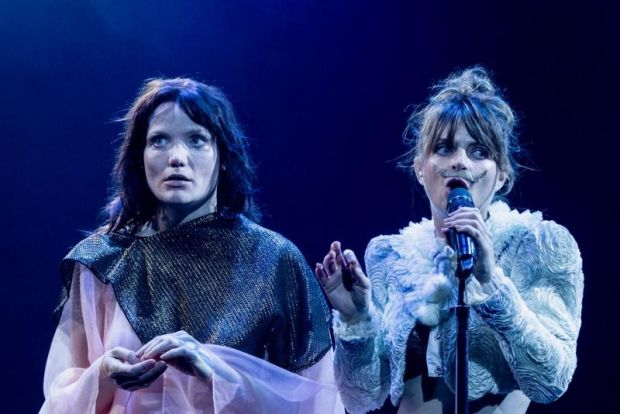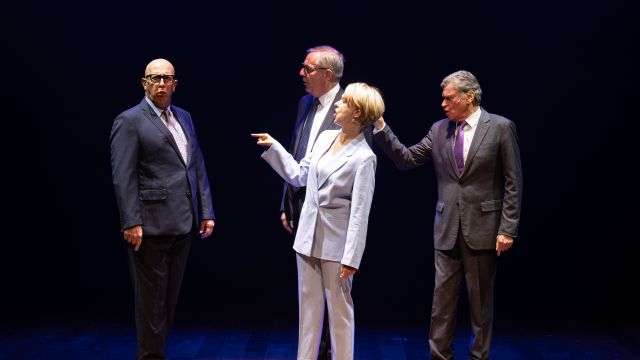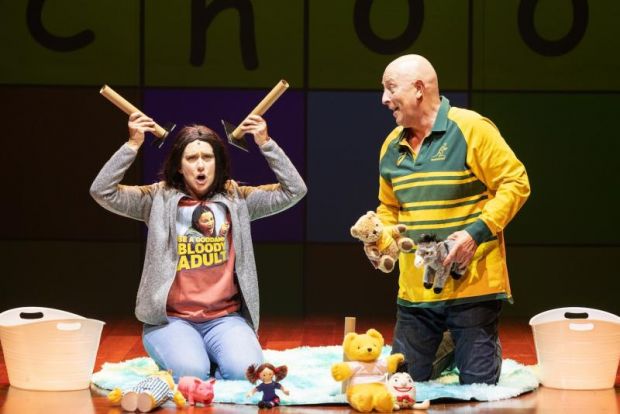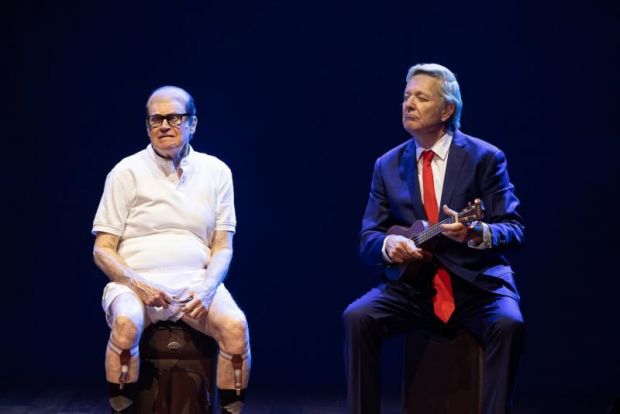By Mark Kilmurry and Jamie Oxenbould. Ensemble Theatre, Sydney. Directed by Mark Kilmurry. 1 December, 2023 – 14 January, 2024
Reviewed : December 7, 2023*
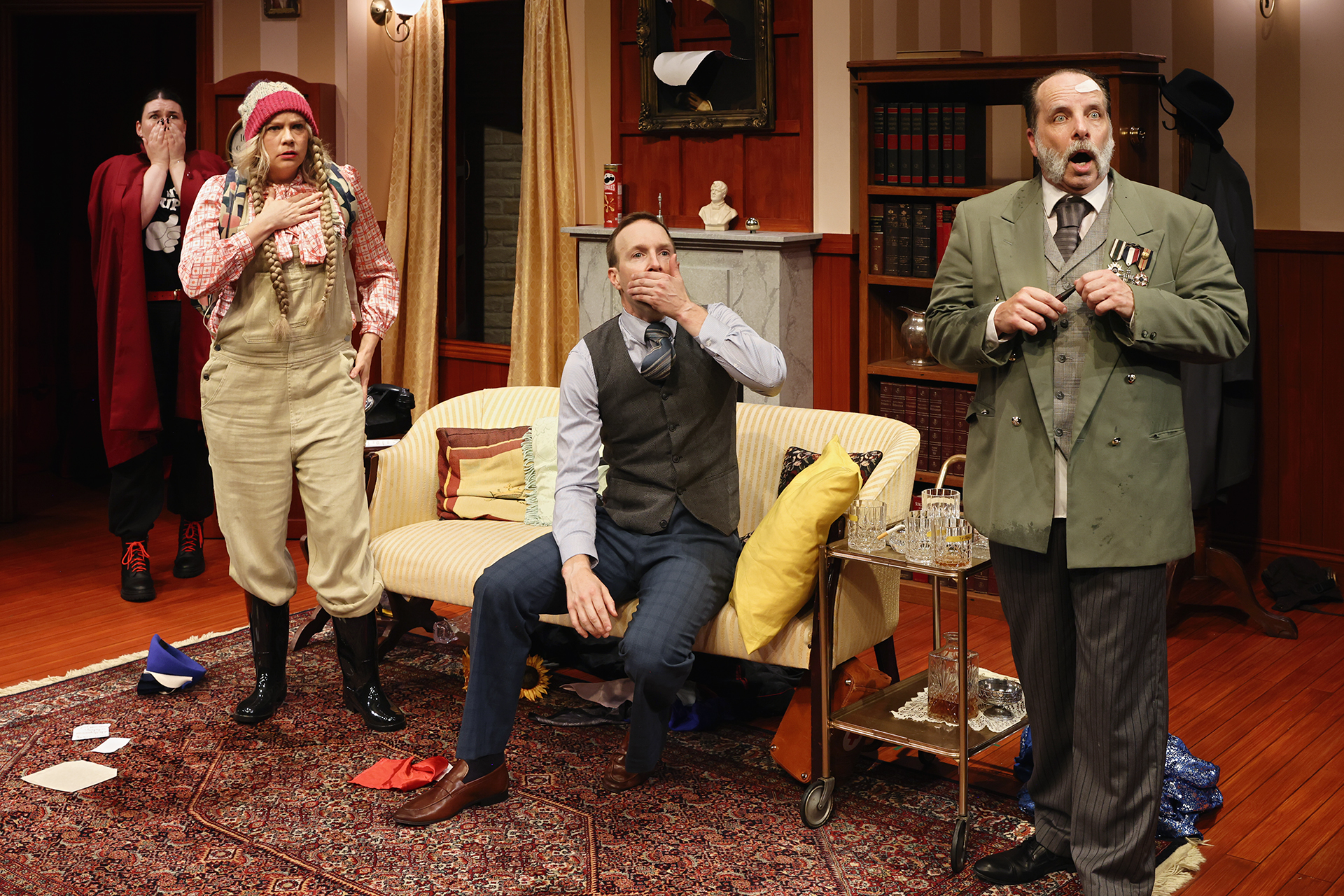
A play within a play! A play about things that can go wrong in the theatre? Surely not! Yet Mark Kilmurry and Jamie Oxenbould’s new take on these old themes is fresh fast and very funny. It’s a great way to end a year in which there hasn’t been too much to laugh about.
Oxenbould explains their idea: “There’s something very pure about amateur theatre. People going to the immense effort to put on a show, purely for the love of the theatre … So seeing that passion get derailed is never not funny. Seeing that derailment soldier on, in the face of overwhelming odds, and finally succeeding, was the starting point for writing this play”.
The fact that they built the play around a production of “a cliché-ridden murder mystery” shows how well they know amateur theatre! Murder mysteries are the ‘bread and butter” of community theatre companies. Audiences love them, so they make a little profit! They have big casts so can accommodate more enthusiastic ‘thespians’. They are usually set in rooms with lots of doors and windows and need moody lighting and sound effects. Add a nasty, contagious virus and you have a host of possible “things that can go wrong”.
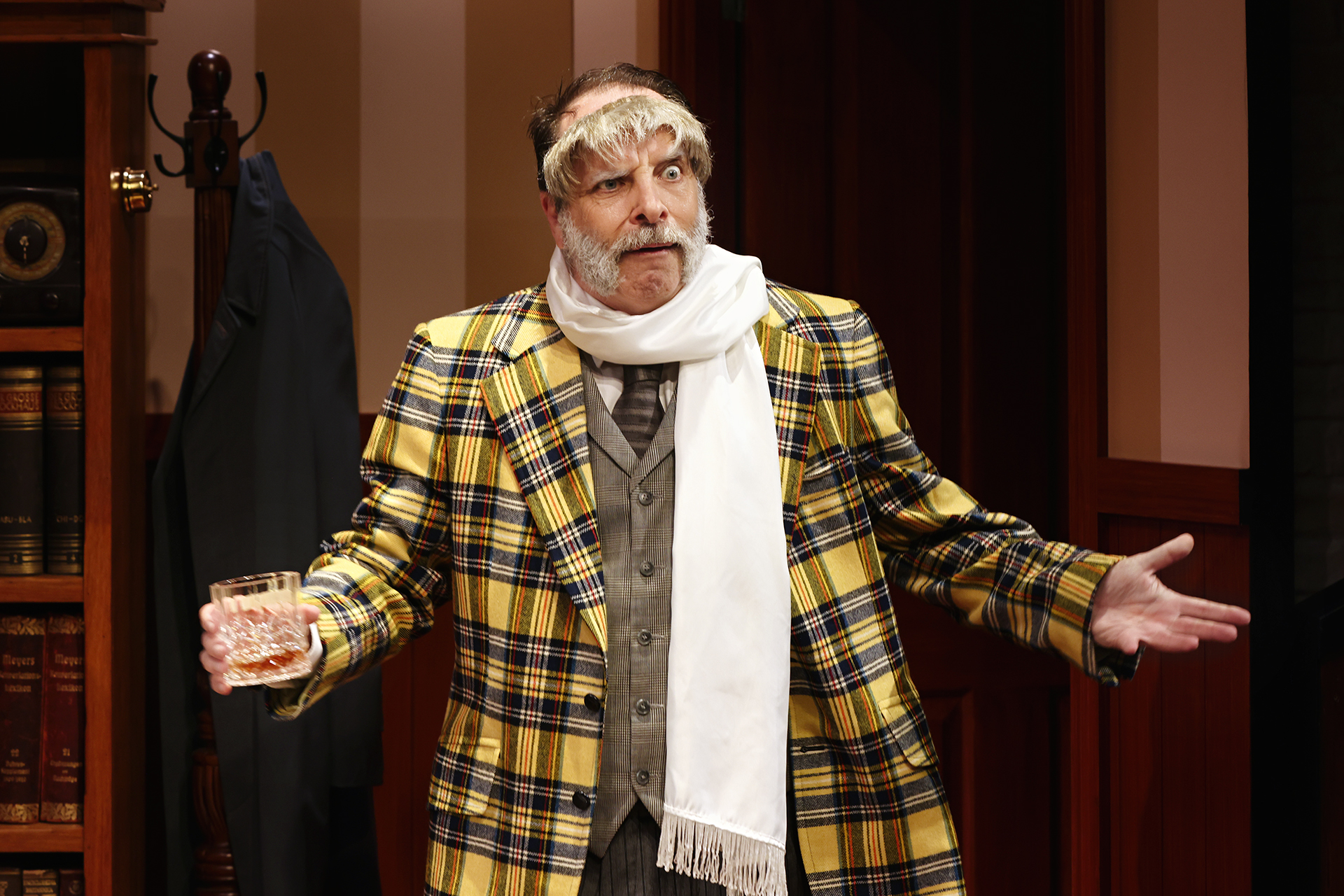 Kilmurry and Oxenbould have combined all of these in a play that’s got something for everyone. They are both clever writers. They know their actors and their audience. And Midnight Murder at Hamlington Hall appeals to both. It’s a physical farce so it’s full of the challenges on which actors and directors thrive. There are zany gags that audiences love. And it’s full of situations, on and off stage, that will make theatre people, especially community theatre people, nod, and laugh … and cringe!
Kilmurry and Oxenbould have combined all of these in a play that’s got something for everyone. They are both clever writers. They know their actors and their audience. And Midnight Murder at Hamlington Hall appeals to both. It’s a physical farce so it’s full of the challenges on which actors and directors thrive. There are zany gags that audiences love. And it’s full of situations, on and off stage, that will make theatre people, especially community theatre people, nod, and laugh … and cringe!
Like a novice stage manager who’s doing community service; her twelve-year-old niece who’s been co-opted to operate lights; a sticking door; over-confident actors; and cast member after cast member calling in sick. But it’s opening night – and the local council is considering cancelling their tenure of the building – so the show must go on! With only two actors, the director, and the stage manager playing all the roles!
Plays like this only work with a tight, committed team of actors and designers and direction that firmly controls the comedy and the pace. Kilmurry’s production works perfectly!
The set, designed by Simon Greer, could stage any Agatha Christie mystery. It hides all the crannies the writers have built into the play and allows for multiple entrances and some surprises.
Greer’s costumes too, add to the comedy and the context of the production. Daryl Wallis provides the atmospheric sound – and Verity Hampson has fun with the lighting, especially when the twelve year old is ‘operating’!

Jamie Oxenbould, Sam O’Sullivan, Ariadne Sgouros and Eloise Snape take on the task of bringing the amateur actors – and the many characters in Hamlington Hall – to life. All four are experienced in the genre; all have an overabundance of energy; all know how to find what Freud called “the meaningful in the meaningless”.
O’Sullivan plays Shane, the (mostly) altruistic director. Sullivan makes Shane understanding, compassionate but nervy and prone to panic which he supresses with superb effort (mostly). He excels in showing Shane’s emotional turmoil and edgy despair as he tries desperately to control the catastrophe that’s developing around him.
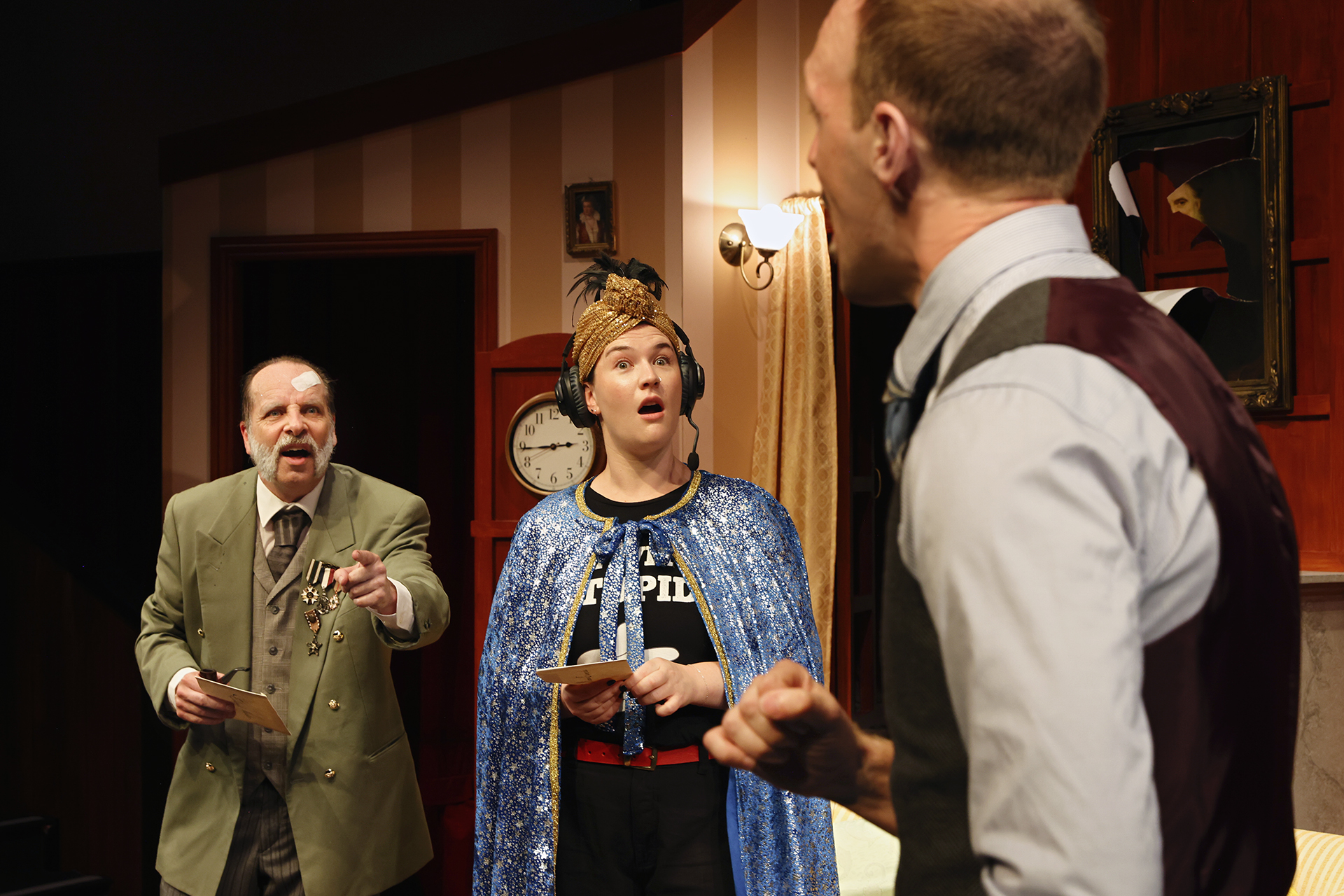
The elderly, arrogant actor, Barney, is played by Oxenbould, who brings superb comic timing and amazing energy to the role. A master of quizzical pauses, raised eyebrows, droll expressions and quick changes, Oxenbould makes Barney haughty, condescending, just a bit pathetic … and hilariously funny.
Eloise Snape plays Phillipa (Pip), the leading lady in the production but one who is also very needy! Snape finds that frailty in a performance that takes her from bright confidence to hesitant uncertainty. She uses comic timing to accentuate the “actor” Pip sees herself to be – and shows her own comedic prowess in the three completely different characters Pip plays in Hamlington Hall.
Karen, the reluctant Stage Manager, is played by Ariadne Sgouros. Sgouros makes Karen, strong, questioning, a little brash. She struts across the stage, stands astride, shakes her head at the behaviour of the ‘actors – but hangs in there to help, even taking on roles in the play! Karen is a great character and Sgouros relishes every funny line and action.
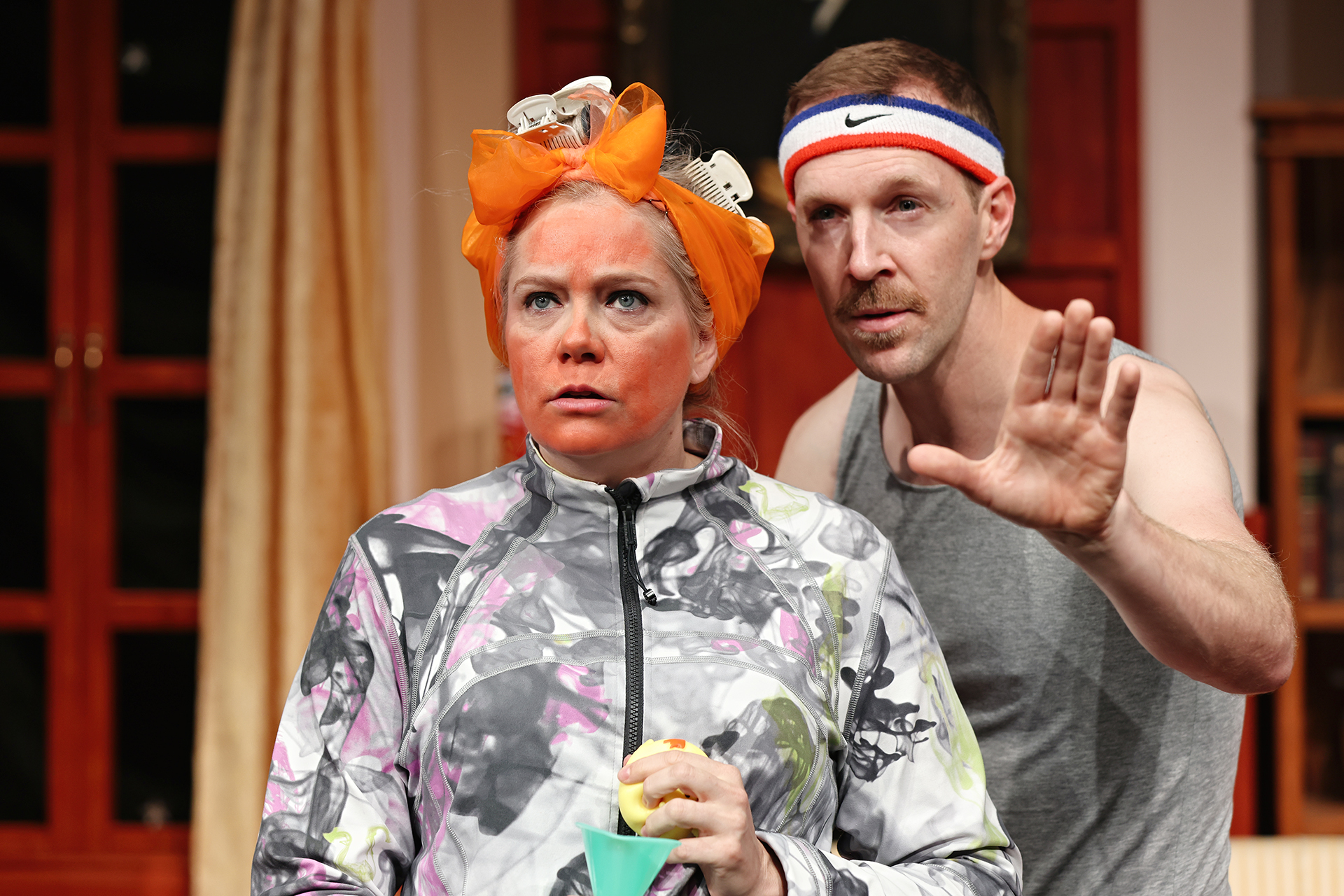
Tallulah Pickard plays the Voice of Karen’s niece, calling down from the bio box to explain what’s going wrong!
Midnight Murder at Hamlington Hall is a credit to both Kilmurry and Oxenbould – and to the creative cast and crew who make it work so effectively. If the laughter in the audience on opening night is anything to go by, it will be another star in the Ensemble’s theatrical story. And it plays right through the holiday season so would be a great gift to those who love theatre and love to laugh!
*Opening Night
